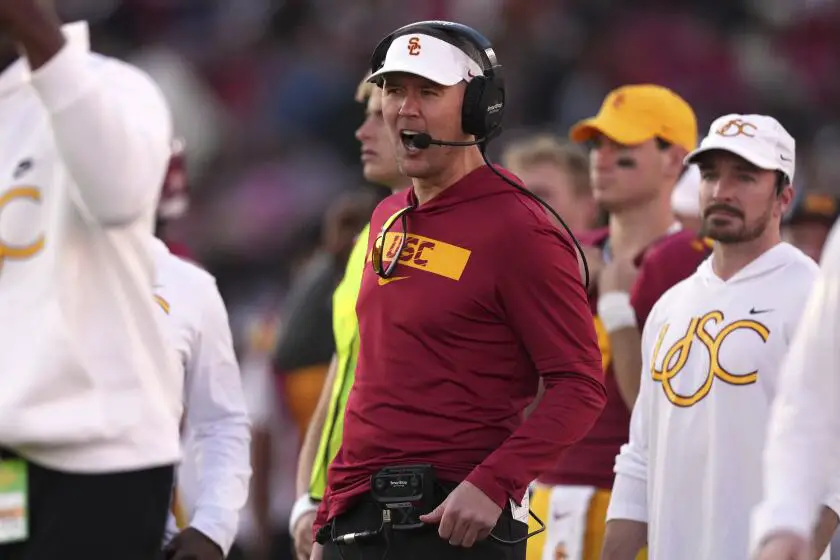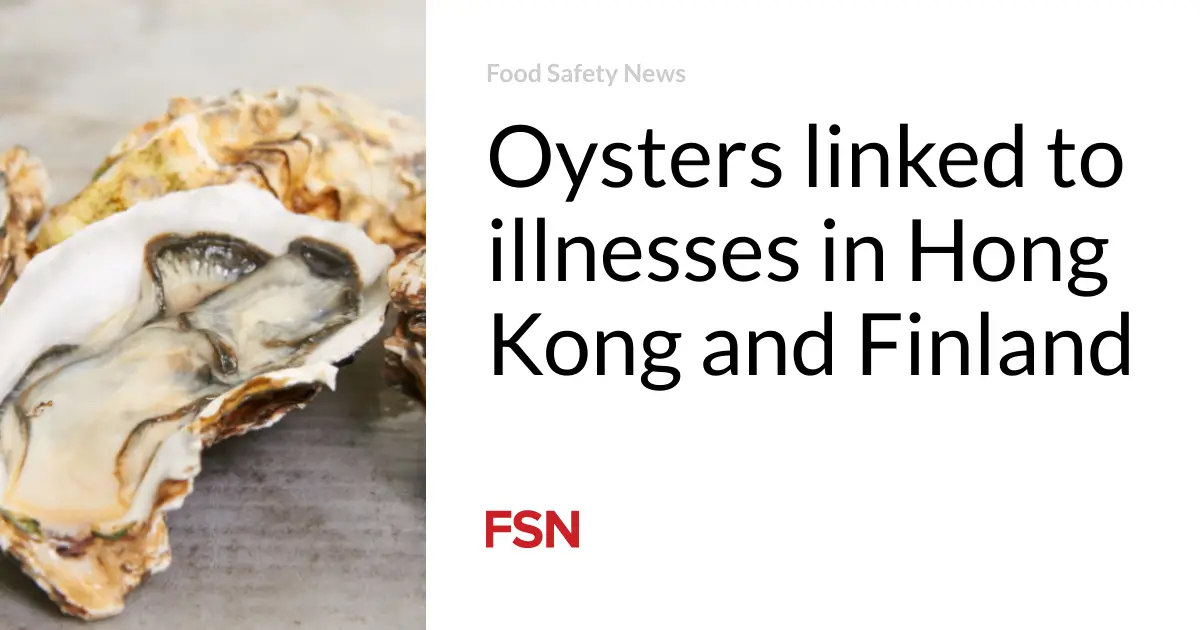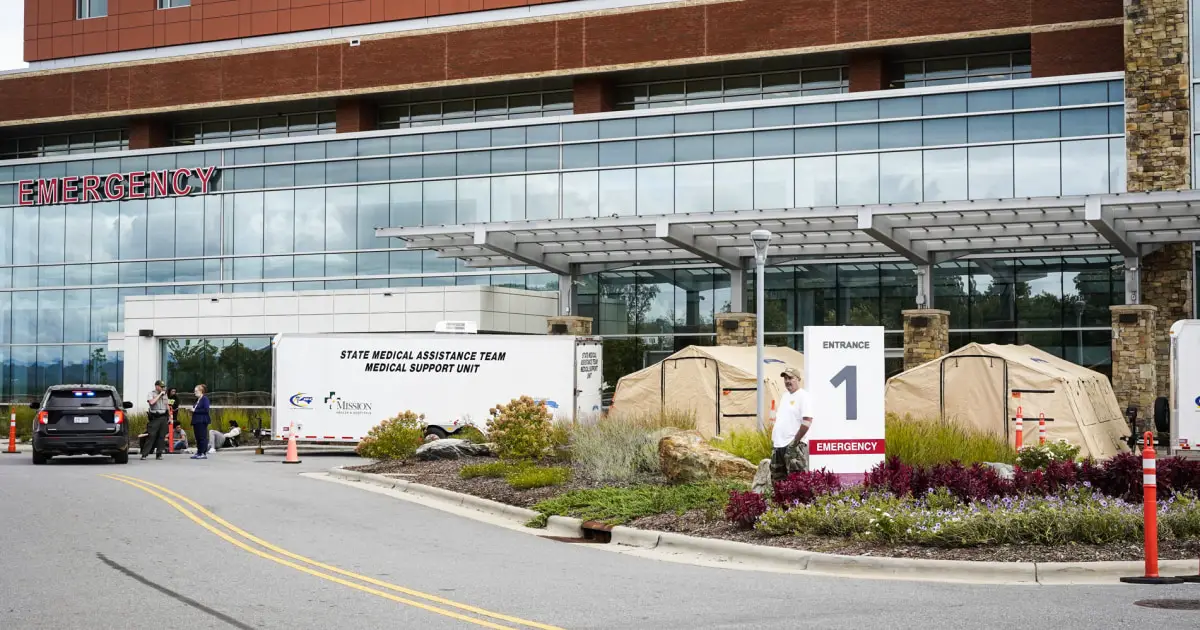
Facing what could be months without a steady water supply, the only solution for Mission Hospital was to dig a well.
The Asheville, North Carolina, hospital was crippled after fast-moving Hurricane Helene dumped a record amount of rain in the region over the weekend.
“The entire water infrastructure to the area was obliterated,” said Hannah Drummond, a nurse at the hospital and the chief nurse representative for National Nurses United, the union that represents nurses at Mission Hospital.
The sewage system was so backed up after the storm, Drummond said, that it wasn’t possible to flush toilets.
“We were pooping in bags and buckets,” she said.
Access to clean water was also wiped out. Patients were showing up at the hospital drenched in floodwater saturated with gasoline, chemicals and other unknown toxins.
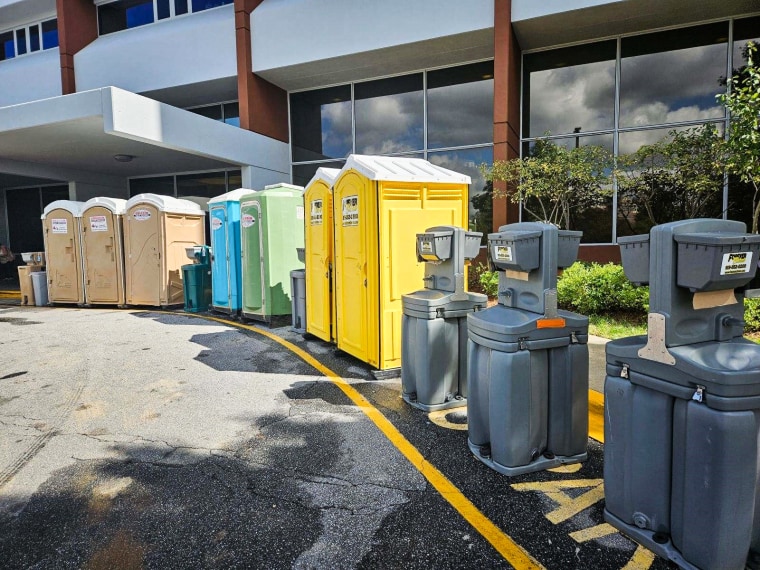
Those people would normally be placed in showers to clean off, Drummond said. Not so after Helene barreled through, knocking out the basics of hygiene.
“It’s been really difficult to do decontamination,” Drummond said. Her team, she said, was forced to fill trash cans with whatever clean water it could find to dump over patients in an effort to rinse them.
Follow live updates on the aftermath of Hurricane Helene
“I feel like I am in the middle of living a nightmare,” she said.
At one point, Drummond said, the hospital’s emergency department was double its usual capacity, packed with 200 patients in a facility meant for 100.
Food was scarce.
“They ran out of food for us on Saturday,” Drummond said. “Patients and the staff in the ER weren’t eating.”
Food trucks have since arrived at the hospital.
On Wednesday, a Mission Hospital doctor who was not authorized to speak on behalf of the hospital system told NBC News that the company that oversees operations there, HCA Healthcare, had dug a well to supply water to the hospital.
“We had no toilets,” the doctor said. “They had to do something.”
HCA Healthcare said Wednesday it was exploring solutions to provide pressurized water to the hospital.
“HCA Healthcare is providing water trucks that supply more than 200,000 gallons of water per day, as well as hundreds of thousands of bottles of water, mobile units including kitchens, bathrooms, showers and laundry, and handwashing stations,” HCA said in a statement. “We are hopeful that the Asheville community’s infrastructure will be restored soon, but we have contingency plans in place and will continue to evaluate how best to take care of our patients and our colleagues.”
As of Wednesday, the doctor said, hospital toilets were working and clinicians were able to wash their hands. Water coming out of the tap, however, was not safe to drink, they said.
The number of patients in the emergency room has also fallen significantly, thanks to outside help, the doctor added.
People visiting patients at Mission Hospital seemed satisfied with the care.
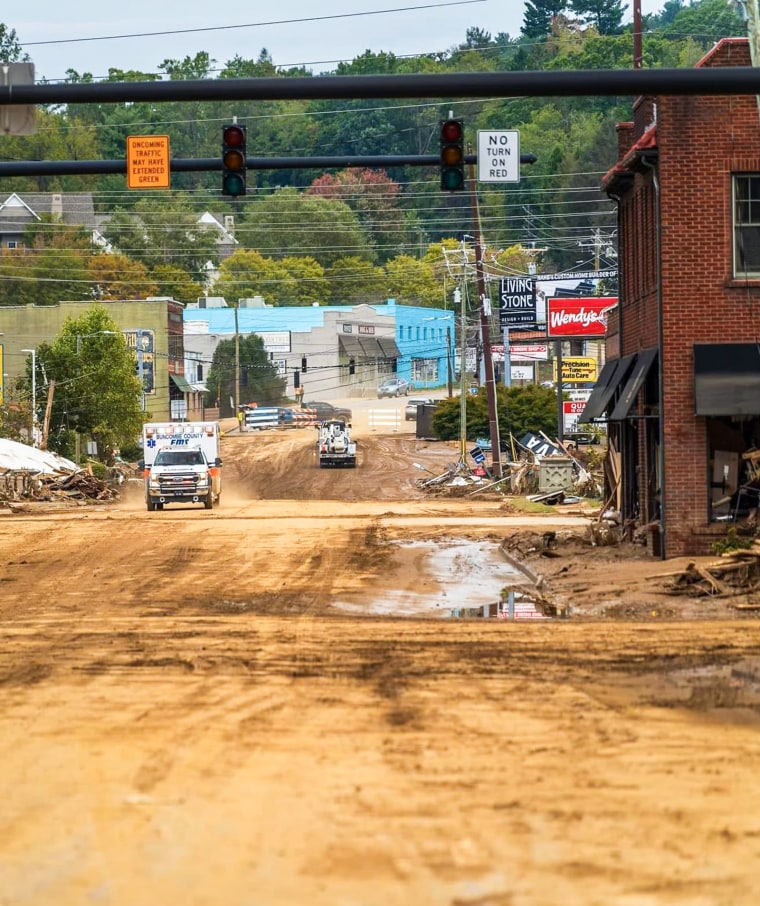
“It’s been really excellent, considering the circumstances,” said Mark Thompson, who was visiting his mother on Wednesday. “Staff has been amazing. They didn’t have water, but they have no control over that.”
Another Mission Hospital visitor who did not want to be named said the facility had people from multiple departments working together.
“If something needed to be cleaned up, they did it,” she said. “It’s definitely all-hands-on-deck, and everyone was pitching in.”



